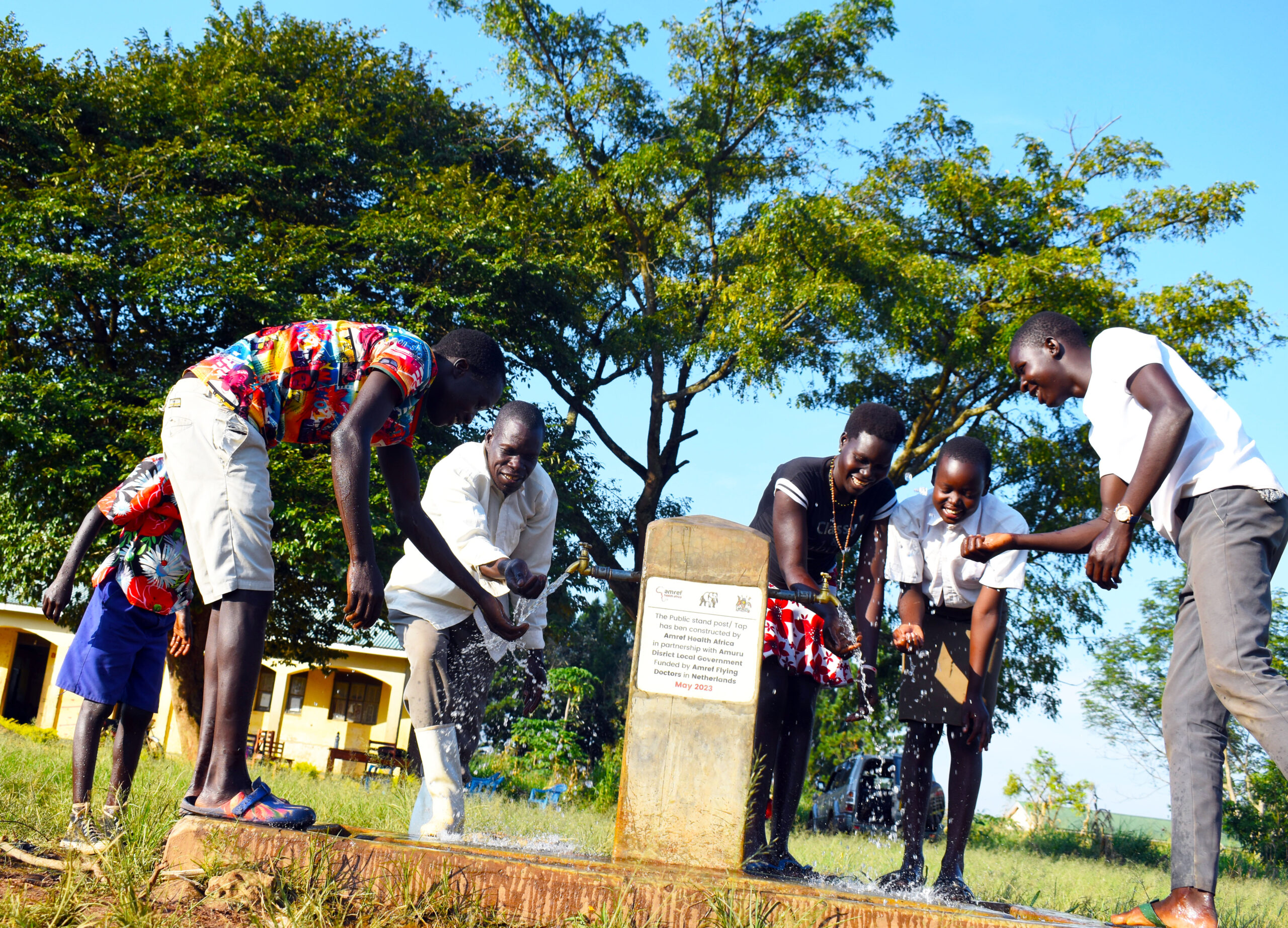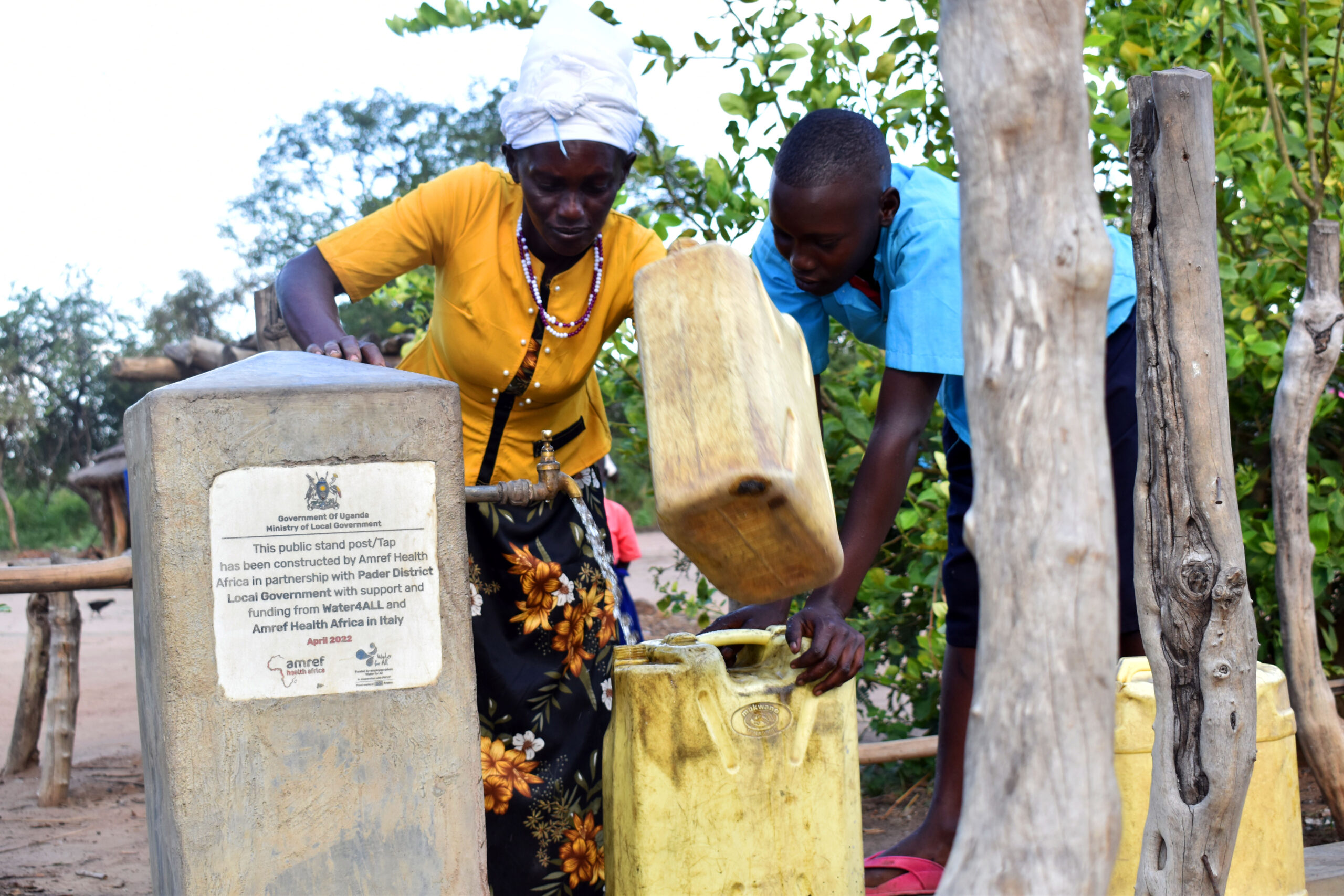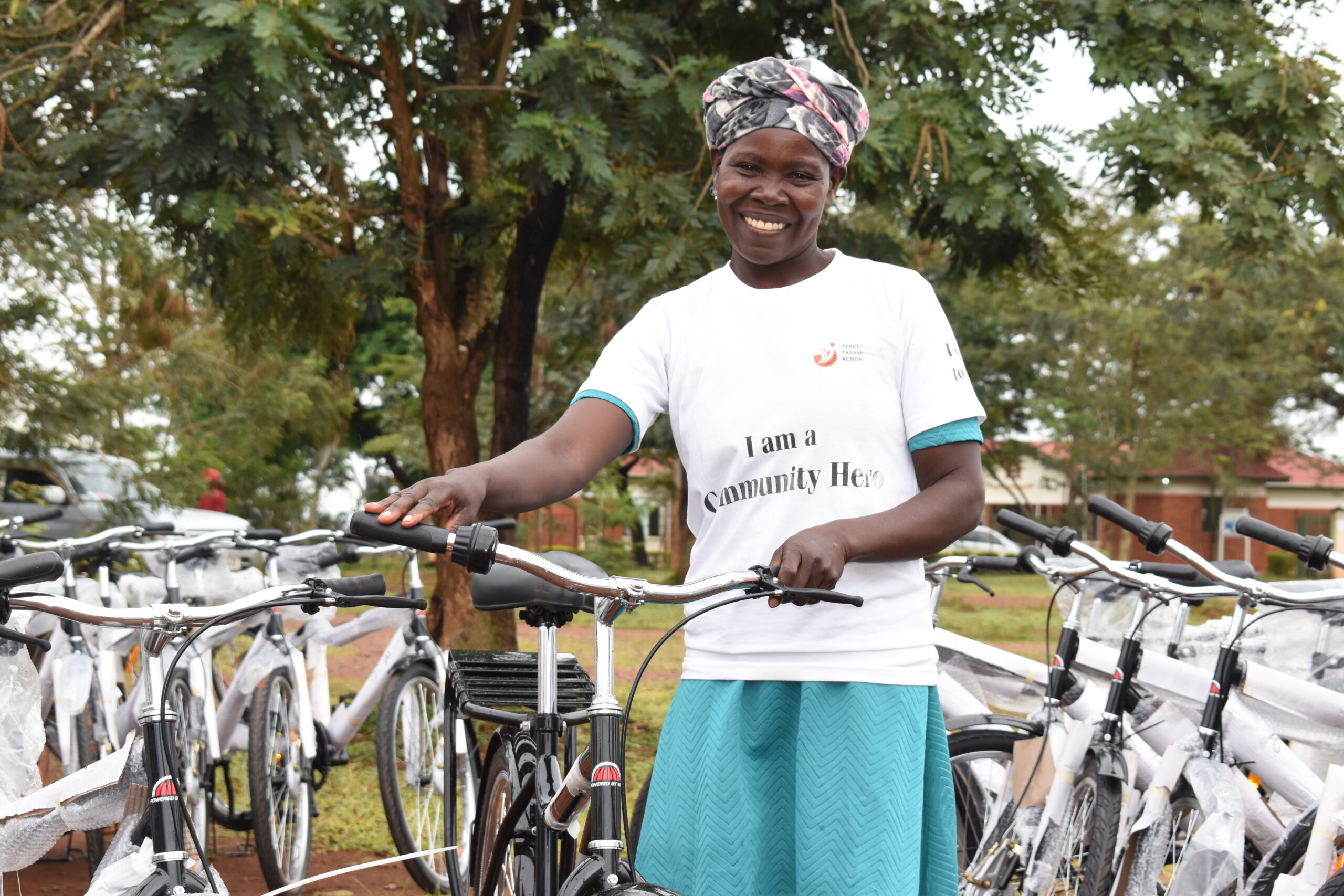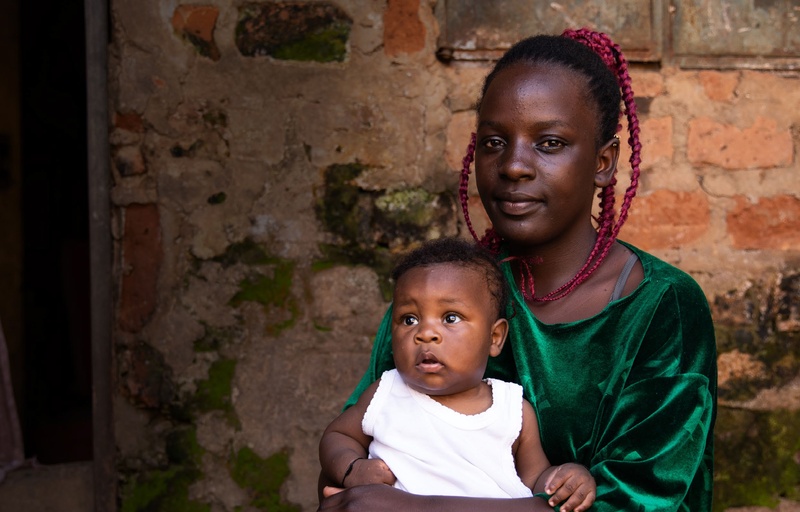Amref Health Africa Commended for Supplementing Government’s Effort in the Fight against Obstetric Fistula in Uganda
Friday, 8 July, 2022

Arua,
Amref Health Africa in Uganda has been commended for supplementing the Government of Uganda’s effort in the struggle to end Obstetric Fistula.
The messages about obstetric fistula were passed to the public during this year’s National Fistula day held on Friday, 27th May 2022at Zombo Lower Primary school in Zombo district.
Zombo was chosen to host the event because it is among the districts that registered the highest number of fistula cases in Uganda.
This comes at a time when Zombo district authorities have registered 57 cases of obstetric fistula, especially among young mothers below 20 years over the past two years.
The leaders blame the obstetric fistula cases on the high rate of teenage pregnancies registered in the past two years resulting from the COVID-19 induced lockdown.0020
Records from the district probation department show that 5,890 cases of teenage pregnancy were registered over the past seven months.
According to Zombo District Health Officer, Dr. Mark Bonny Bramali the Zombo District Health Officer, they have already noted an increase in Obstetric fistula cases resulting from teenage pregnancies.
Dr. Bramali says the lack of capacity in health facilities and poor staffing are the major factors stimulating the current surge in fistula cases in the district.
An obstetric fistula is an abnormal opening between a woman’s genital tract and her urinary tract or rectum.
The condition is caused by prolonged, obstructed labor which often leaves women leaking urine, feces, or both.
Amref Health Africa is among the first organizations to highlight the devastating condition of obstetric fistula in Uganda. Ministry of Health Approached Amref in 2004 to support the government in carrying out corrective surgeries.
Over the past five years, Amref Health Africa in Uganda has supported treatment for over 1,500 women across various regions in the country. Most the women recover fully after the operation.

During medical camps, the specialized teams work with the junior health workers such as doctors, nurses, midwives and anesthesia providers as part of continuous medical education and professional development This way, the knowledge is passed on to upcoming medical practitioners.

Zombo district chairperson, James Oyullu Oruna says that they have intensified sensitization against the problem. He has urged women to seek treatment once they contract the condition.
Oyullu said government should upgrade the health centers in the district because of the numerous challenges of health and large population.
“Statistics show that Zombo has so many health issues like fistula because of its placement near the border with DR Congo. We appeal for a district general hospital to manage these challenges. We have land where the district hospital can be constructed. We also embrace all government programs. Since Zombo is hosting this fistula program, and we have seen the benefits, let us sensitize the community about fistula on radios and other platforms”, Oyullu said.
Dr. Jackson Amone, the Commissioner Clinical Services in the Ministry of Health said, “Whenever fistula operation is done, we make follow up to ensure that the survivors recover and get back to their normal duties. The mothers who have undergone operation should not have sex for 6moths to 1year so that they heal well. Otherwise, if they don’t follow instructions, they risk damaging the repairs we have already done”.
The Minister of State for Northern Uganda, Grace Freedom Kwiyucwiny applauded Amref for its intervention to aid government programs especially in the health sector.
“I thank AMREF for supporting this program in Zombo district and UNFPA for donating these fistula kits. Ministry of health officials and local health service providers, you have also done a great job. I appeal to you all to do the work for which government pays you. Fistula is real and we must do whatever it takes to end it” Kwiyucwiny said.
In the same note, the Minister of State for Health in charge of General Duties, Anifa Bangirana Kawooya lauded the development partners, especially Amref for working closely with the government in the areas of health service delivery.

She said few women get opportunity to access constructive surgery and “whoever knows any daughter, any mother of ours suffering from fistula, let them come out without fear because they can be helped. Once they are treated, they are helped and integrated in their communities”. Kawooya said the Government of Uganda is dedicated to helping “them except we did not do much awareness and that is why we are here today. Our emphasis is that at every sub county, there should be a fully-fledged maternity facility to health our mothers. I want to thank all our development partners like Amref, UNFPA and others including local partners for joining hands to fight obstetric fistula in our communities. We must do everything to help someone suffering from fistula problem. In this time of battle, we should make sure we are looking at our marginalize people especially the girl child”.
Some of the fistula survivors spoke about their experiences of living with the condition.
A fistula survivor, Sharon Muber, a victim of Fistula, said her husband chased her away because she kept urinating on herself after the second birth.
Faiza Tholith, 17, said she got pregnant at 14 years because she was not going to school. She was just at home and conceived. Tholith said, “I wasn’t married, I just got pregnant when I was still staying with my parents, during childbirth. I failed to push because the passage was small.”
Other survivors speak out.

Survivor 1
“I used to fear moving in public because people would always say I smell so much. But now I am free to mix up with people our Amref helped us to overcome the problem of fistula. After recovery from the operation, Amref gave me some money and now I am doing business and living a normal life. I thank them so much”.
Survivor 2
“Living with fistula mad me grow so thin and all my cloths never fitted me. I thought so much about how any time I will die and lost hope in everything. But with the intervention by Amref, my life has changed so much. I ask Amref to do the same to other people and God will bless you”.
The Ministry of Health estimates that at least 200,000 women in Uganda are living with fistula and 1,900 new cases occur each year.
According to the Uganda Demographic and Health Survey 2016, 2% of Ugandan women aged 15–49 years had experienced Obstetric Fistula, and 368 women per 100,000 live births died of birth-related causes. End
Article by Patrick Oryema
Amref Health Africa teams up with African communities to create lasting health change.




